Education philosophies clash at packed Philly SRC meeting
-

-
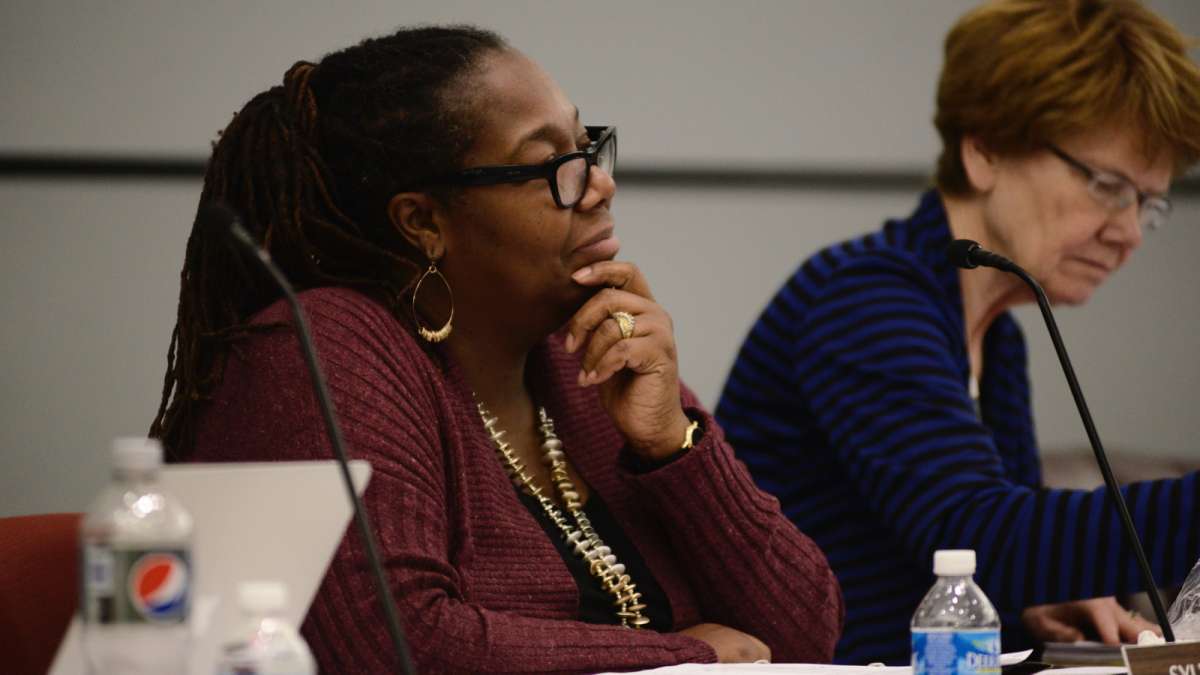
-
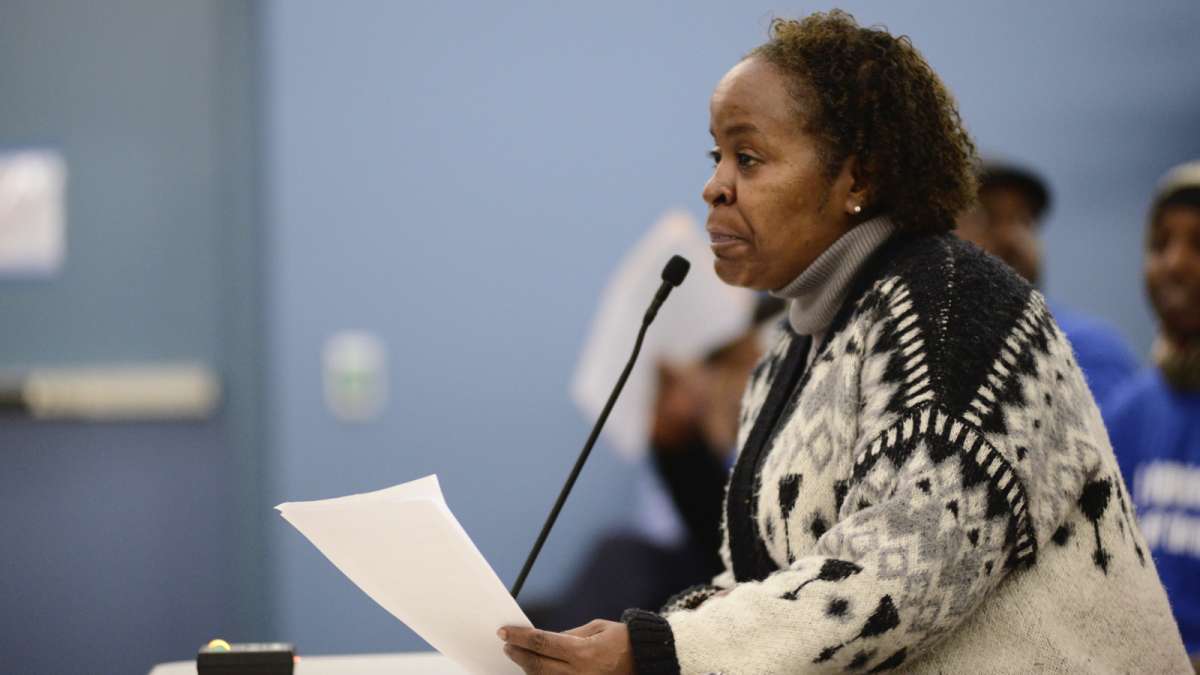
-
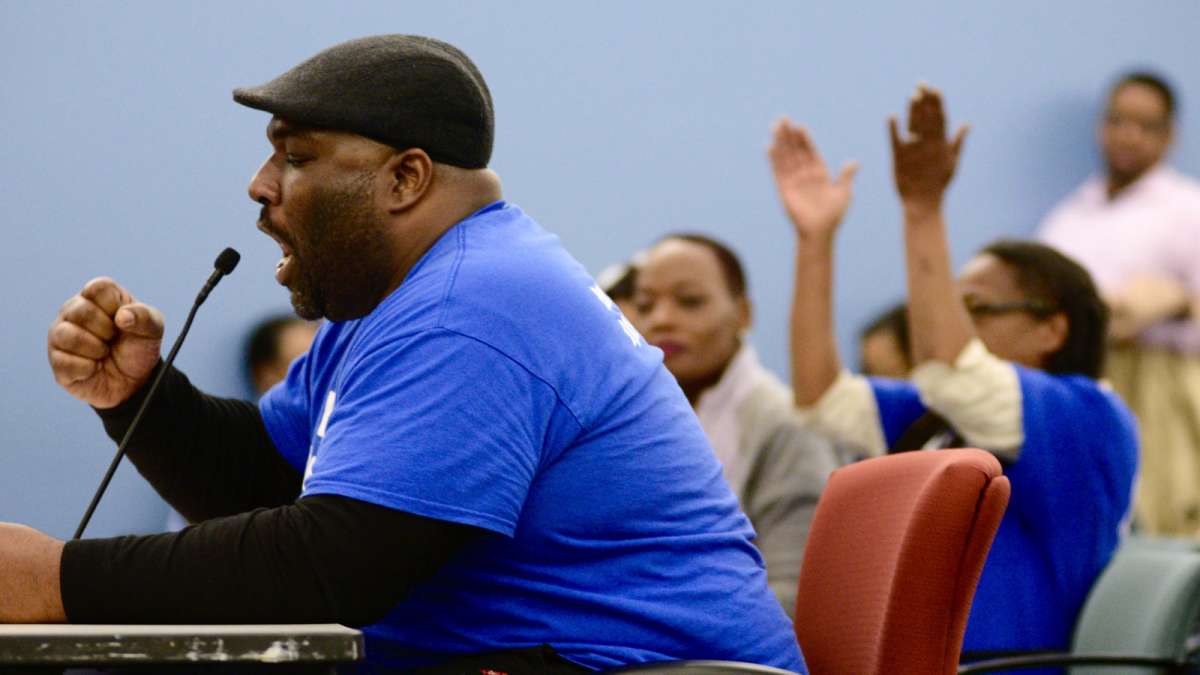
-
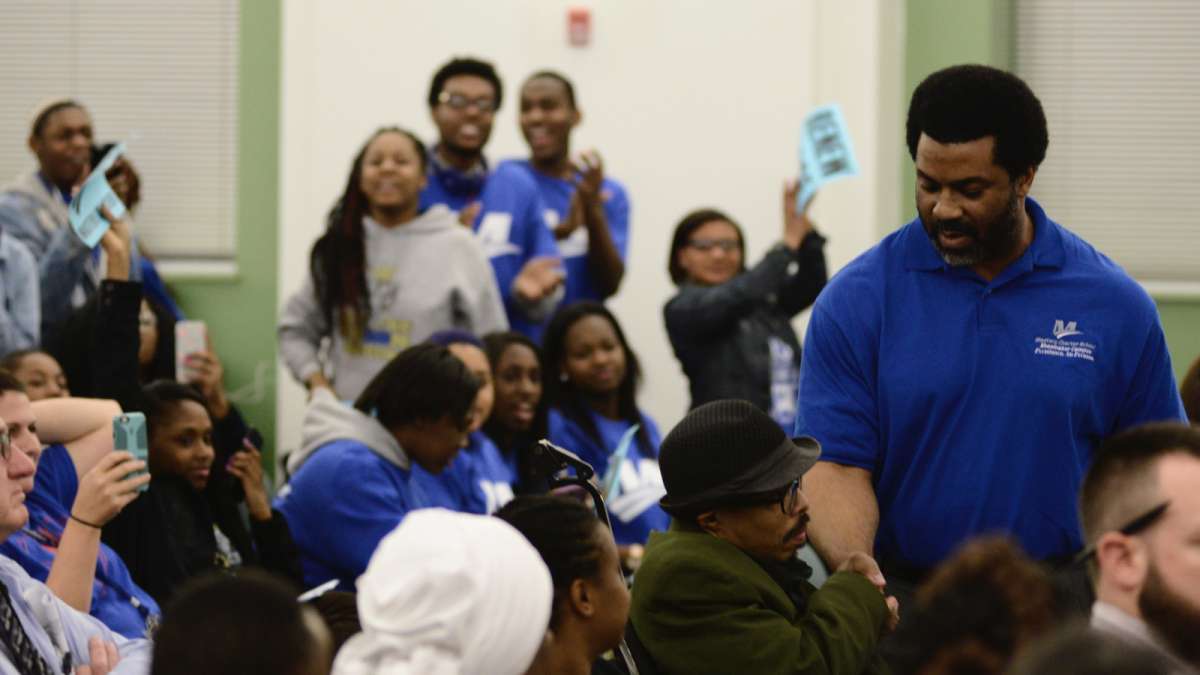
-
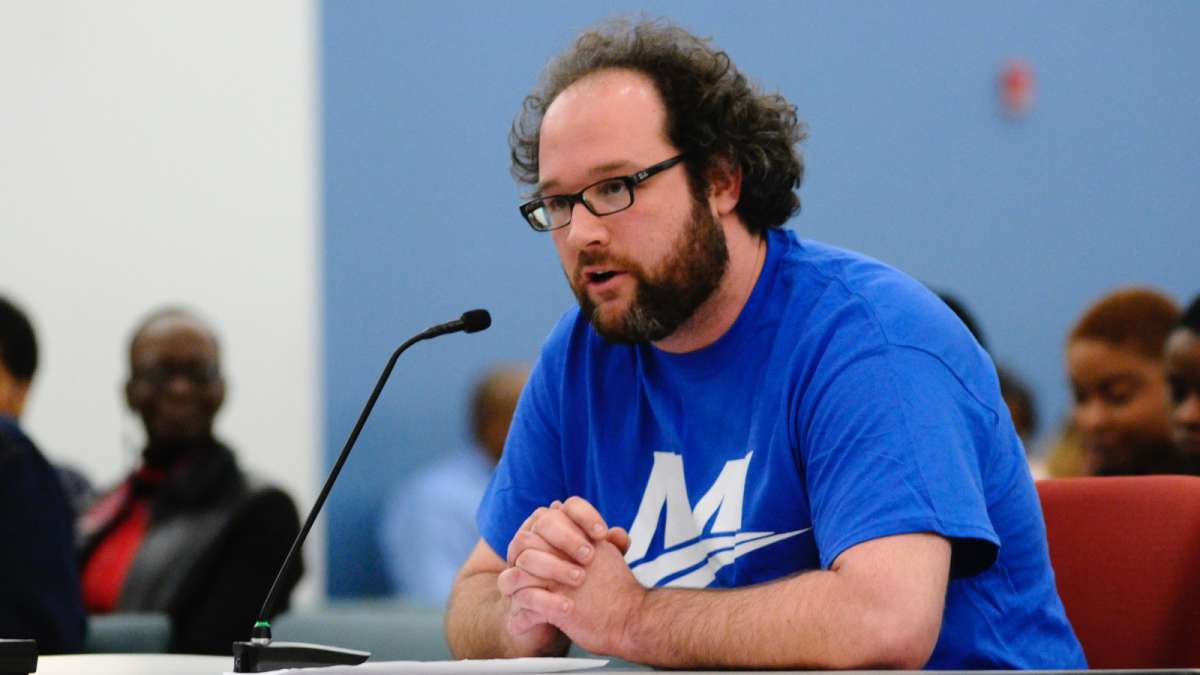
-
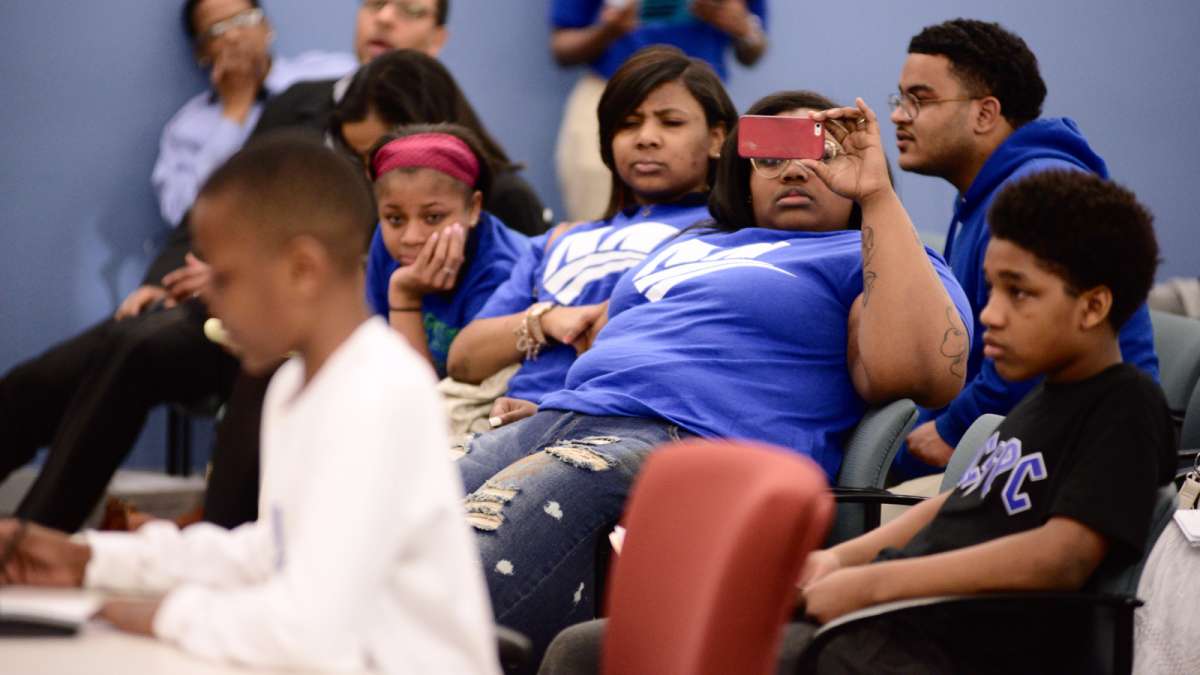
-
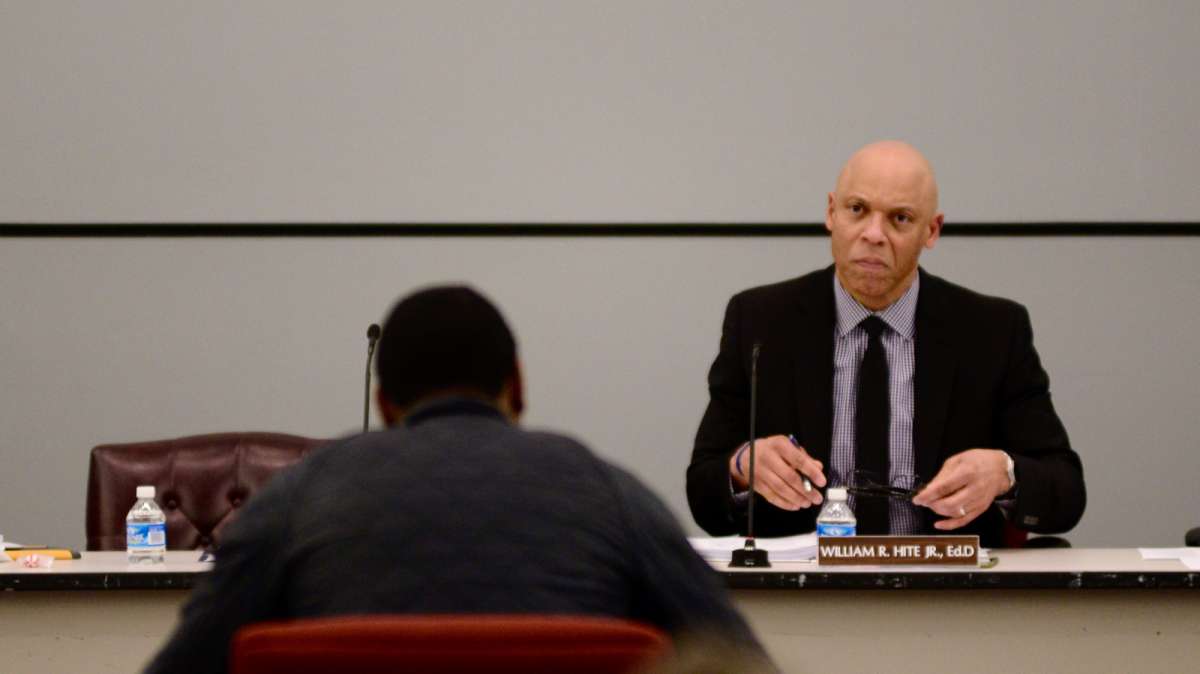
-
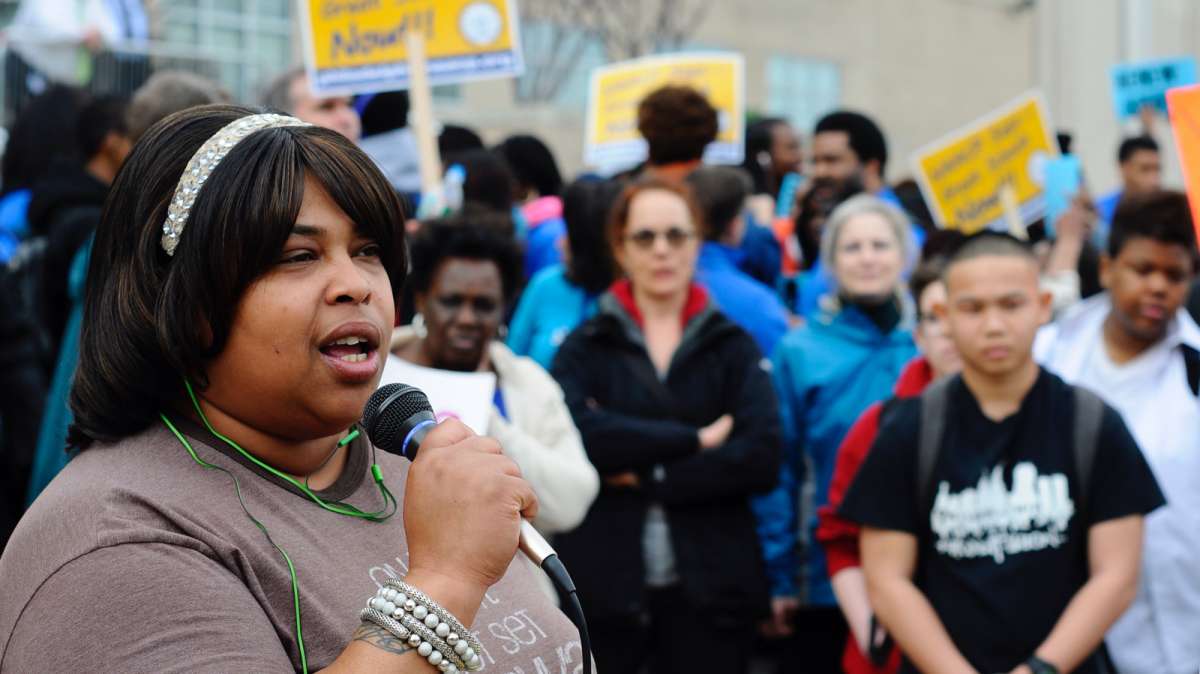
Parent Kenya Nation Holmes, who opposed the change, felt bullied by Mastery supporters during the process. Pictured here speaking at a rally in March 2016. (Bastiaan Slabbers for WHYY)
-
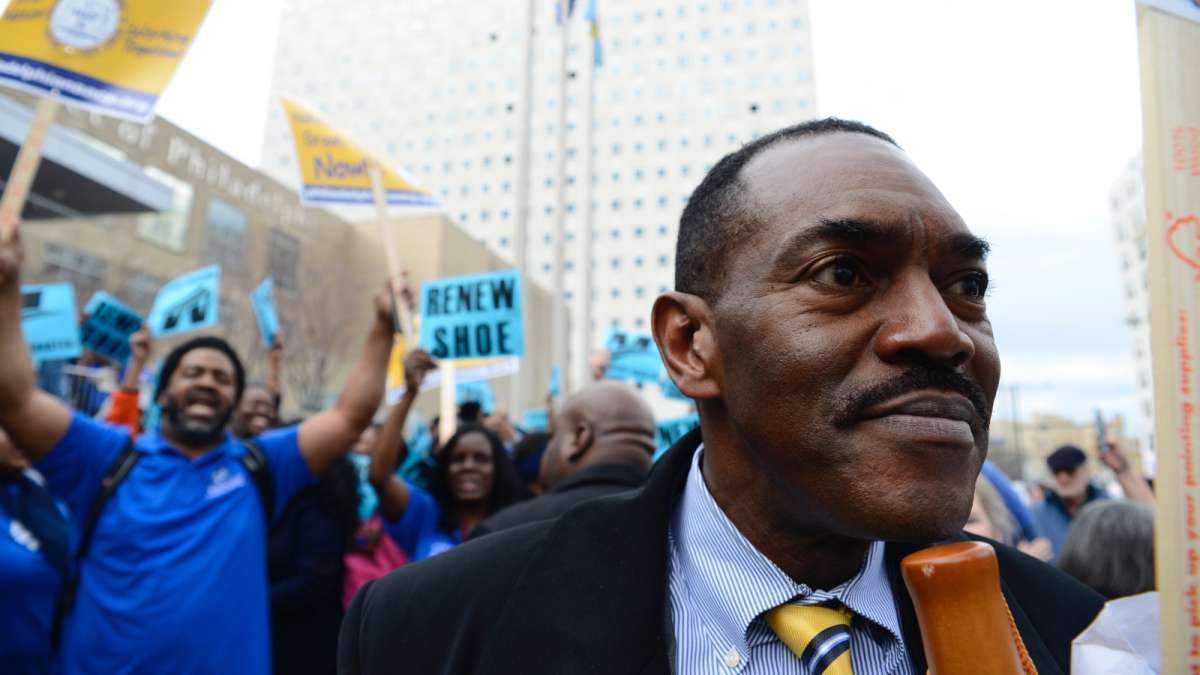
Rodney Muhammad, president of the Philadelphia chapter of the NAACP, compared the proposed Wister conversion to the slave trade. (Bastiaan Slabbers for WHYY)
-
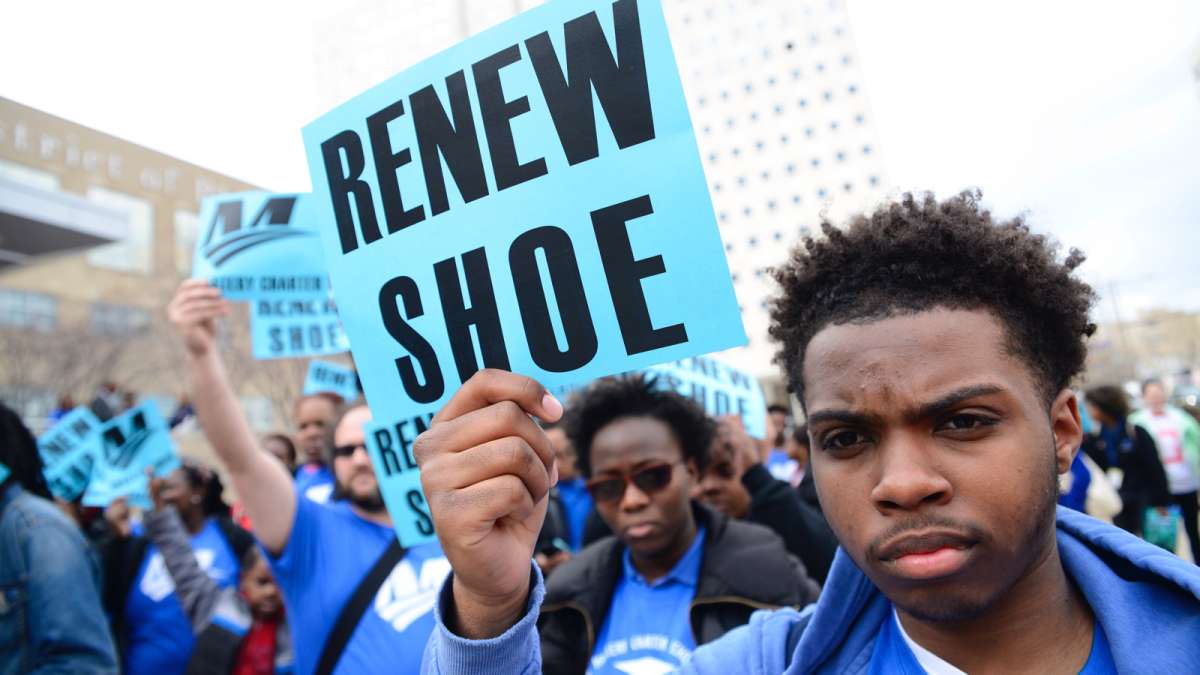
Mastery students Nyim Tate-Miller and Vanessa Morris watched the March 2017 rally with skepticism. (Bastiaan Slabbers for WHYY)
-
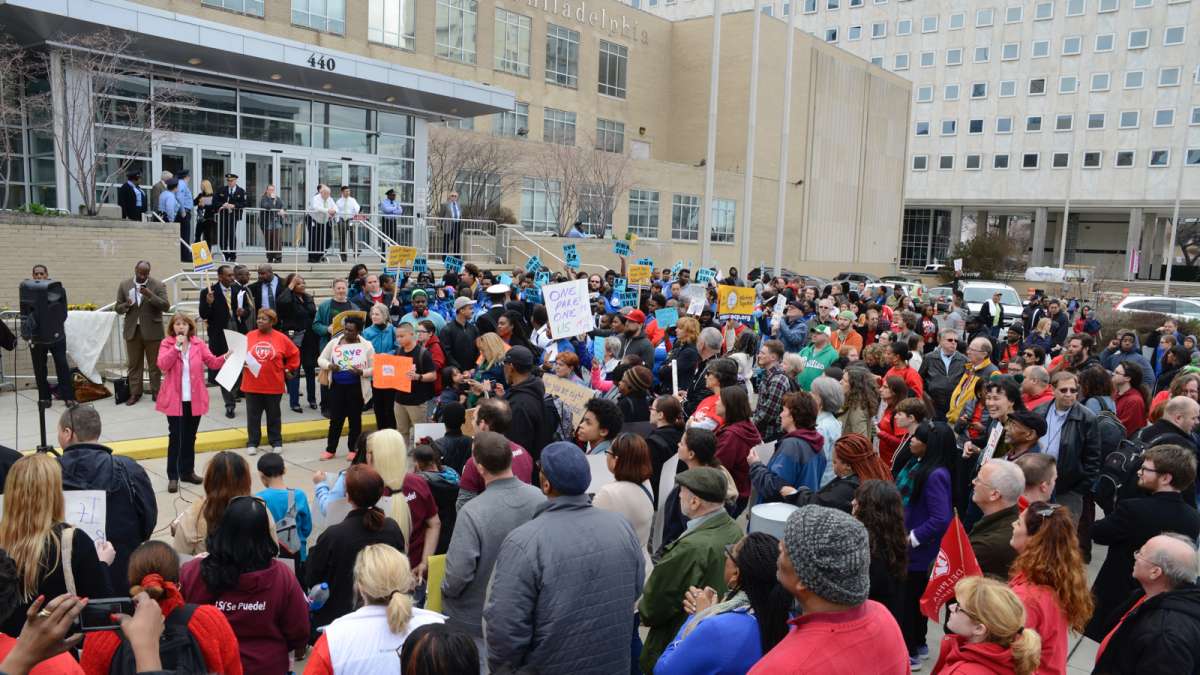
Retired teacher Lisa Haver speaks against the Wister conversion at a rally held outside district headquarters in March 2016. (Bastiaan Slabbers for WHYY)
Thursday’s Philadelphia School Reform Commission meeting again became a forum to debate the school district’s plans for drastic intervention at several of its lowest performing schools.
The evening began with a clash of minds on the front steps of district headquarters.
Before the meeting, the NAACP joined the Philadelphia Federation of Teachers and other traditional public school advocates in a rally against the district’s school conversion plans — all of which would result in dramatic faculty shakeups.
NAACP Philadelphia chapter president Rodney Muhammad called for the SRC to be abolished with a reference to the slave trade.
“They are nothing but a consultant group for private industry who wants to take over our children and put them back on the auction block,” he said.
Muhammad’s statement was directed in part at Mastery charter — one of three nonprofit charter organizations that have applied to takeover three low-performing elementary schools.
Those remarks didn’t sit well with Kirby Ames, a senior at Mastery’s Shoemaker campus in West Philadelphia. He stood on the other side of the steps with dozens of Mastery supporters listening to speakers bash the charter’s motives.
“I think what they’re saying is wrong, because Mastery is a great school system, a great organization,” said Ames. “It helps all the students in it. And think this is a waste of time. I don’t believe any of the stuff they’re talking about up there.”
In a follow-up interview, NAACP’s Muhammad said he believed that many charter schools exist solely to make a profit.
“Mastery falls into that unfortunately,” he said, but later added: “The jury is still out on Mastery and what it can do.”
Asked to reference a charter that he supports, Muhammad named Math, Sciences and Civics Charter — a non-neighborhood-based school with a mediocre academic record that serves far fewer special-education students than the district average.
Mastery CEO Scott Gordon was taken aback by Muhammad’s comments. The charter chain has the best record in Philadelphia of boosting student achievement within the neighborhood-based charter school model.
“We believe every child can succeed, and I think we can prove that by the number of students who graduate Mastery, go to college, come back to the neighborhood, teach at Mastery,” he said. “This is really about growing our youth and building our city.”
In the jam-packed three and a half hour SRC meeting that followed, a central question arose that often sits at the center of big city school debates:
Can vast improvements be made at low-performing schools by providing consistent resources and supports? Or does it also take drastic shakeups in faculty and management?
Mastery Shoemaker principal Sharif El-Mekki testified for the latter:
“We recognize that funding is vital and not providing it is oppression,” he said. “But we also know that our community was being failed by adults for years. From my 23 years of experience, I know that adults’ mindset coupled with proper funding can be the difference maker.”
Robin Lowry pushed the other view. She teaches at Wister Elementary in Germantown, which Mastery has applied to run.
“Teachers feel disrespected and at the same time, set up to fail. You’ve taken the resources out of Wister that Mastery now brags that they will bring in,” she said. “You’re making public school students suffer, struggle and lag behind to create this myth that when a charter company comes in – and the resources are brought back – it has something to do with the superior charter management.”
Superintendent William Hite has pushed for school turnaround interventions in seven schools this year. Those plans would dramatically shake-up faculty and administration in those schools.
In October, he called for charter organizations to assume control of three neighborhood schools. Mastery applied for John Wister in Germantown; Global Leadership Academy applied for Samuel Huey in West Philadelphia; and Great Oaks applied for Jay Cooke in Logan.
Hite later rescinded his recommendation about Wister, but the School Reform Commission decided to continue the process anyway. It will vote on each next month.
Last week, Hite announced that he also wants the district to perform internal turnarounds at four elementary schools. At those, all faculty will need to reapply for their jobs, and no more than half of the teachers will be allowed to return.
The selected elementaries — Roosevelt in Germantown, S. Weir Mitchell in Southwest Philadelphia, E.W. Rhodes in Swampoodle, and Munoz-Marin in Fairhill would receive added resources that are contingent on a boost in state aid.
Each has already seen major staffing changes, grade reconfigurations or both in recent years.
Daniel Symonds is one of the 33 new teachers who came to Munoz-Marin in 2014. That year, the district’s failed bid to convert the school into a charter run by Aspira pushed half of the staff to seek placements elsewhere.
“I don’t think any educator worth their salt thinks this turnaround plan at Marin – which is going to gut the staff again – is going to solve the issues at our school,” he said.
In the business on the agenda last night: The SRC approved $15.5 million in capital upgrades, mainly for extensive repairs and renovations at four district schools. Nearly $7 million will go to the soon-to-be shuttered Leeds middle school — which will reopen as Hill-Freedman’s new grades 6-12 magnet school campus in the Fall.
The commission also agreed to pay $750,000 to whistleblower Francis X. Dougherty. He lost his job in 2010 after speaking out against former superintendent Arlene Ackerman’s move to steer a no-bid contract for school surveillance cameras to a preferred vendor.
Conversion debates aside, the more than eight months overdue state budget hung like a backdrop to the night’s proceedings.
In an interview after the meeting, SRC Chair Marge Neff said the standoff between Gov. Tom Wolf and the Republican-held state legislature has gone on too long.
The district has borrowed more than $500 million to keep its operations running, and it’s still left without enough cash to finish the school year.
“Nobody has to give in,” she said, “Both of them have to move to the middle.”
WHYY is your source for fact-based, in-depth journalism and information. As a nonprofit organization, we rely on financial support from readers like you. Please give today.





